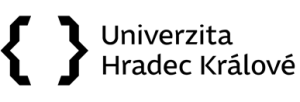The emphasis is placed on the processual side of the public policy dynamics (with a focus on the fields of Welfare State and social policies). The subject focuses on the processes of decision-making and implementation of public policy (social programs, or social policies), and on the approaches towards their analysis. The trends towards the so-called New Public Management and the changes in the ways of governing (governance) will also be mentioned. As to the analysis of the creation and implementation of policy, the subject focuses on the rationalism and incrementalism in the formation of public policy and on the vertical and horizontal dimensions of policy making - it mentions the approaches towards the creation and analysis of the top-down policy and the bottom-up policy.
The processual side of social policy (its formation and dynamics) should allow students to reflect on the complexity of the mutual relations of all of the relevant players in social policy and interpret the difficulties in the formation and implementation of public (social) policies. The knowledge is usable both at the local and national (international) level of creation and in the analysis of social programs (social policies). In practice, the knowledge can be used in the conceptual and analytic activities of the Ministry of Labour and Social Affairs, at the regional and municipal level in the process of designing of the individual thematic areas of social policy (family policy, employment policy, education policy,...), and also in the process of the community planning of social services.
Curriculum:
- New forms of "governance" in society, Participative governance
- Decentralisation tendencies in public policy
- Who exactly creates policy? Vertical and horizontal dimensions of policy
- Players in policy making
- Rationalism and incremental approach towards policy making
- Different concepts of the implementation of public policy, policy as an implementation of goals: top-down perspective and implementation in a bottom-up perspective
In case of need the lessons may be organised in distant form using ICT.
- Teacher: Martin Smutek
